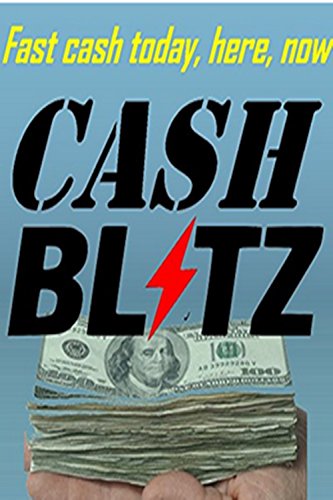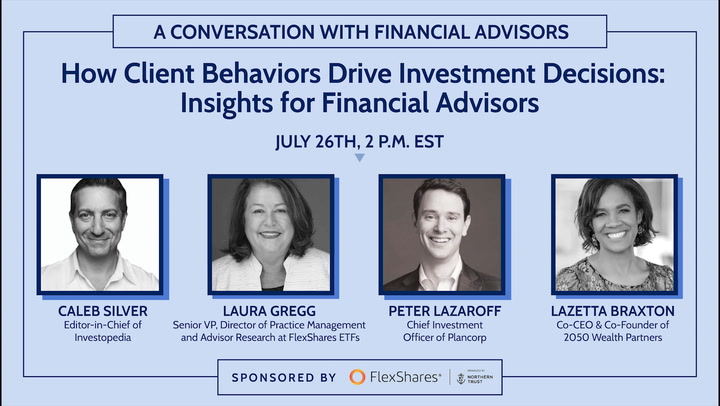
Fixed income investments are an easy way of generating a steady stream. This type of portfolio comes with some risks. There are many factors to be aware of. Consider your investment style, goals, current market environment and other factors. To make sure you are meeting your financial goals, it's a good idea to periodically review your portfolio.
A portfolio may contain a variety different fixed income products. These may include bonds, certificates, or money market funds. Each product offers a variety of benefits to investors. Bonds, for instance, are amongst the most reliable investments. They offer a steady rate of return regardless the market. Government bonds, municipal bonds and corporate bonds are the most popular types. ETFs, which are fixed-income exchange traded funds (ETFs), are another option. ETFs can be traded on stock exchanges. They replicate the performance of bond market indexes.
Fixed-income investment can be a reliable source of income, but they also have the same risks as stocks. Before deciding whether to invest or not, investors need to consider credit risk, inflation risk, as well as interest rate risk. You may also need to consider contingency provisions that could affect cash flows for fixed-income security.

When investing in fixed income, it is important to avoid investments that have not been backed by the United States government. International bonds are a good example. Your principal could be lost if the country where you are investing is unstable. Additionally, if the company is in difficulty, it may be difficult for you to sell your bond openly.
If you're looking for an income stream that will last, you might consider investing in a mix bond, CDs, or money market funds. You can have the liquidity you desire while still having the flexibility to manage the money. Fixed-income strategies are able to generate returns and help you ride the market's ups and downs.
Blended fixed income strategies also allow you to take advantage rate changes. This can increase your profits and decrease your risk. Also, you can get a better return if you combine short-term with long-term bond.
Fixed-income investors should build a core portfolio that includes a mix of bonds. They can then add on to it in subsequent years, depending on the market. A laddering strategy can be used to get a regular income stream from short-term bond investments. This is especially important when interest rates rise.

Another risk to keep in mind is that all bonds have credit risk. Whether you're a first-time investor or a seasoned pro, you can't afford to invest in a high-risk bond without knowing the company's history of financial stability.
Fixed-income investments, like municipal bonds, can have higher rates of return than other fixedincome products. In addition, some fixed-income securities are guaranteed by a third party. Treasury Inflation Protected Securities for instance adjusts the principal amount of your bond to reflect inflation rates.
FAQ
What is personal finance?
Personal finance means managing your money to reach your goals at work and home. This means understanding where your money goes and what you can afford. And, it also requires balancing the needs of your wants against your financial goals.
These skills will allow you to become financially independent. This means that you won't have to rely on others for your financial needs. You won't have to worry about paying rent, utilities or other bills each month.
You can't only learn how to manage money, it will help you achieve your goals. It makes you happier overall. If you are happy with your finances, you will be less stressed and more likely to get promoted quickly.
Who cares about personal finances? Everyone does! Personal finance is the most popular topic on the Internet. Google Trends shows that searches for "personal finances" have increased by 1,600% in the past four years.
Today's smartphone users use their phones to compare prices, track budgets and build wealth. You can read blogs such as this one, view videos on YouTube about personal finances, and listen to podcasts that discuss investing.
In fact, according to Bankrate.com, Americans spend an average of four hours a day watching TV, listening to music, playing video games, surfing the Web, reading books, and talking with friends. This leaves just two hours per day for all other important activities.
Personal finance is something you can master.
How much debt are you allowed to take on?
There is no such thing as too much cash. If you spend more than you earn, you'll eventually run out of cash because it takes time for savings to grow. So when you find yourself running low on funds, make sure you cut back on spending.
But how much do you consider too much? There is no universal number. However, the rule of thumb is that you should live within 10%. That way, you won't go broke even after years of saving.
This means that if you make $10,000 yearly, you shouldn't spend more than $1,000 monthly. You shouldn't spend more that $2,000 monthly if your income is $20,000 For $50,000 you can spend no more than $5,000 each month.
Paying off your debts quickly is the key. This includes credit card bills, student loans, car payments, etc. Once those are paid off, you'll have extra money left over to save.
You should consider where you plan to put your excess income. If you decide to put your money toward stocks or bonds, you could lose money if the stock market falls. However, if you put your money into a savings account you can expect to see interest compound over time.
Consider, for example: $100 per week is a savings goal. It would add up towards $500 over five-years. At the end of six years, you'd have $1,000 saved. In eight years, your savings would be close to $3,000 It would take you close to $13,000 to save by the time that you reach ten.
Your savings account will be nearly $40,000 by the end 15 years. It's impressive. If you had made the same investment in the stock markets during the same time, you would have earned interest. Instead of $40,000, you'd now have more than $57,000.
This is why it is so important to understand how to properly manage your finances. Otherwise, you might wind up with far more money than you planned.
What is the difference between passive income and active income?
Passive income is when you earn money without doing any work. Active income requires effort and hard work.
If you are able to create value for somebody else, then that's called active income. It is when someone buys a product or service you have created. Examples include creating a website, selling products online and writing an ebook.
Passive income is great because it allows you to focus on more important things while still making money. Most people aren’t keen to work for themselves. So they choose to invest time and energy into earning passive income.
Problem is, passive income won't last forever. You might run out of money if you don't generate passive income in the right time.
Also, you could burn out if passive income is not generated in a timely manner. So it's best to start now. You'll miss out on the best opportunities to maximize your earning potential if you wait to build passive income.
There are 3 types of passive income streams.
-
There are several options available for business owners: you can start a company, buy a franchise and become a freelancer. Or rent out your property.
-
Investments include stocks, bonds, mutual funds, ETFs, and ETFs.
-
Real Estate - this includes rental properties, flipping houses, buying land, and investing in commercial real estate
Which side hustles have the highest potential to be profitable?
Side hustles can be described as any extra income stream that supplements your main source of income.
Side hustles provide extra income for fun activities and bills.
Side hustles can also be a great way to save money for retirement, have more time flexibility, or increase your earning potential.
There are two types of side hustles: passive and active. Online side hustles can be passive or active. These include ecommerce shops, blogging and freelancing. Side hustles that are active include tutoring, dog walking, and selling products on eBay.
The best side hustles make sense for you and fit well within your lifestyle. You might consider starting your own fitness business if you enjoy working out. If you love to spend time outdoors, consider becoming an independent landscaper.
You can find side hustles anywhere. Side hustles can be found anywhere.
You might open your own design studio if you are skilled in graphic design. Or perhaps you have skills in writing, so why not become a ghostwriter?
Be sure to research thoroughly before you start any side hustle. If the opportunity arises, this will allow you to be prepared to seize it.
Remember, side hustles aren't just about making money. Side hustles are about creating wealth and freedom.
There are so many opportunities to make money that you don't have to give up, so why not get one?
Why is personal finance important?
If you want to be successful, personal financial management is a must-have skill. In a world of tight money, we are often faced with difficult decisions about how much to spend.
Why then do we keep putting off saving money. Is it not better to use our time or energy on something else?
The answer is yes and no. Yes, because most people feel guilty if they save money. You can't, as the more money that you earn, you have more investment opportunities.
You'll always be able justify spending your money wisely if you keep your eyes on the bigger picture.
To become financially successful, you need to learn to control your emotions. Negative thoughts will keep you from having positive thoughts.
You may also have unrealistic expectations about how much money you will eventually accumulate. This is because you aren't able to manage your finances effectively.
These skills will allow you to move on to the next step: learning how to budget.
Budgeting is the act or practice of setting aside money each month to pay for future expenses. Planning will help you avoid unnecessary purchases and make sure you have enough money to pay your bills.
Now that you understand how to best allocate your resources, it is possible to start looking forward to a better financial future.
Is there a way to make quick money with a side hustle?
If you want to make money quickly, it's not enough to create a product or a service that solves an individual's problem.
You must also find a way of establishing yourself as an authority in any niche that you choose. It means building a name online and offline.
Helping people solve problems is the best way build a reputation. It is important to consider how you can help the community.
Once you have answered this question, you will be able immediately to determine which areas are best suited for you. Online earning money is possible in many ways. However, these opportunities are often highly competitive.
When you really look, you will notice two main side hustles. The first involves selling products or services directly to customers. The second involves consulting services.
Each method has its own pros and con. Selling products or services gives you instant satisfaction because you get paid immediately after you have shipped your product.
You might not be able to achieve the success you want if you don't spend enough time building relationships with potential clients. In addition, the competition for these kinds of gigs is fierce.
Consulting allows you to grow your business without worrying about shipping products or providing services. However, it can take longer to be recognized as an expert in your area.
In order to succeed at either option, you need to learn how to identify the right clientele. This takes some trial and errors. However, the end result is worth it.
Statistics
- According to a June 2022 NerdWallet survey conducted online by The Harris Poll. (nerdwallet.com)
- Mortgage rates hit 7.08%, Freddie Mac says Most Popular (marketwatch.com)
- U.S. stocks could rally another 25% now that Fed no longer has ‘back against the wall' in inflation fight (marketwatch.com)
- As mortgage rates dip below 7%, ‘millennials should jump at a 6% mortgage like bears grabbing for honey' New homeowners and renters bear the brunt of October inflation — they're cutting back on eating out, entertainment and vacations to beat rising costs (marketwatch.com)
- While 39% of Americans say they feel anxious when making financial decisions, according to the survey, 30% feel confident and 17% excited, suggesting it is possible to feel good when navigating your finances. (nerdwallet.com)
External Links
How To
Passive Income Ideas To Improve Cash Flow
There are many online ways to make extra money without any hard work. Instead, you can make passive income at home.
Automation could also be beneficial for an existing business. You might be thinking about starting your own business. Automating certain parts of your workflow may help you save time as well as increase productivity.
Your business will become more efficient the more it is automated. This allows you more time to grow your business, rather than run it.
Outsourcing tasks is a great method to automate them. Outsourcing allows you and your company to concentrate on what is most important. You are effectively outsourcing a task and delegating it.
You can concentrate on the most important aspects of your business and let someone else handle the details. Outsourcing allows you to focus on the important aspects of your business and not worry about the little things.
It is possible to make your hobby a side hustle. You can also use your talents to create an online product or service. This will help you generate additional cash flow.
Articles are an example of this. You have many options for publishing your articles. These sites allow you to earn additional monthly cash because they pay per article.
You can also consider creating videos. Many platforms let you upload videos directly to YouTube and Vimeo. These videos can drive traffic to your website or social media pages.
Investing in stocks and shares is another way to make money. Investing stocks and shares is similar investment to real estate. You get dividends instead of rent.
You receive shares as part of your dividend, when you buy shares. The amount you get depends on how many shares you purchase.
If your shares are sold later, you can reinvest any profits back into purchasing more shares. You will keep receiving dividends for as long as you live.